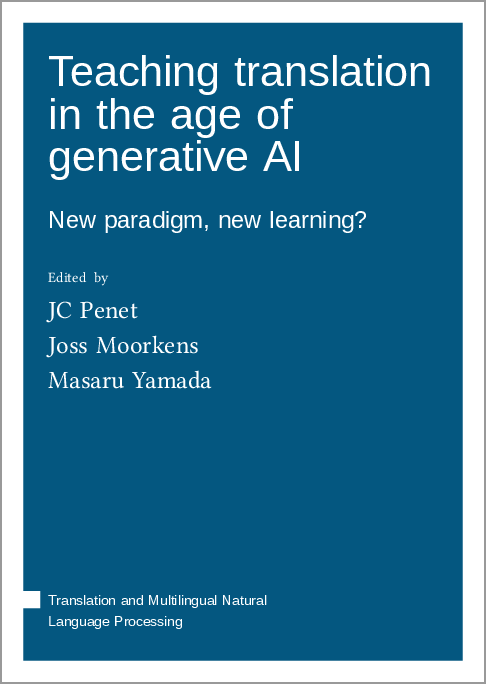We log anonymous usage statistics. Please read the privacy information for details.
Teaching translation in the age of generative AI: New paradigm, new learning?
Synopsis
Since the launch of OpenAI’s ChatGPT in 2022, generative artificial intelligence (GenAI) has started reshaping what it means to work as a professional translator in an industry that is becoming increasingly automated. This prompts us to interrogate, once again, the role and agency of human translators in the translation process or, in other words, the intrinsically human value and values they add to it. A natural corollary is that GenAI forces us translator educators to (re-)interrogate what we do in our translation programmes. Whatever we may think or feel about GenAI, we owe it to our students to engage with it in our programmes. However, because GenAI is not just another tool in the translator’s toolkit, we must also to do so in a way that raises students’ awareness of some of the ethical and sustainability issues around it.
This is what Teaching Translation in the Age of Generative AI: New Paradigm, New Learning aims to do. Articulated around three main parts, Part 1 explores the new skills and competences translator educators need to help their students develop in the age of GenAI. In Part 2, the focus shifts to the new knowledge (such as data literacy and prompting) that students in translation programmes need to engage with in the age of GenAI. Finally, Part 3 puts some flesh on the bones, as it reviews some of the new teaching approaches adopted by colleagues since the advent of GenAI. It does so by introducing the reader to a series of vignettes taken from a variety of translation-related disciplines and contexts.
Throughout the entire edited volume, the ambition is to be as accessible as possible, so that this volume can be of help to as many of us in translation education as possible, as we all learn to negotiate the uncharted territory of GenAI.
Chapters
-
Introduction
-
Translation competence in the age of generative AIDebates, dilemmas, directions
-
Generative AI as a facilitator of deliberate practice in translator training
-
AI Literacy: The concept of suitability and core translation skills
-
Teaching translation students about data in the age of generative AI
-
Teaching translation with AI: Bridging theory and practice through prompt engineering
-
Teaching AI ethics for translation students
-
Re-positioning the human translator as the future expert of GenAI translation in the translation classroomThe results of a collaborative study
-
Computer-assisted language mediation in teaching human-centred augmented translation
-
Teaching subtitling in the times of generative AI
-
AI in an L2 translation class
-
Gamification as a pedagogical instrument in interpreter training
-
Embracing machine translation in L2 educationBridging theory and practice in the AI Age




